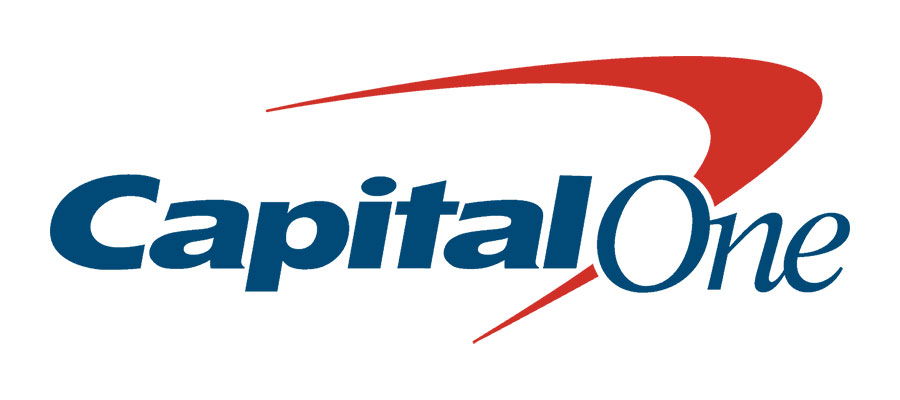A car loan is a common way many consumers finance the purchase of a new car. It involves borrowing money from a lender and promising to pay back the loan amount, plus interest, over a specific loan term. The terms and conditions of these car loans vary from one lender to another, but in essence, you agree to make regular car loan payments until the loan is paid off.
However, sometimes life can throw a curveball your way, causing financial hardships that can affect your ability to keep up with your auto loan payments. When you miss one or more of these payments, you risk defaulting on a car loan.

The definition of auto loan default can vary depending on the specifics of your loan agreement, but generally, defaulting on a car loan means that you’ve failed to meet the agreed terms for repayment.
Key Takeaways
- Defaulting on a car loan leads to significant consequences, such as a drop in credit score, car repossession, and potential legal action to recover the remaining debt.
- If you’re struggling with payments, consider communicating with your lender about modified payment plans, exploring loan modification programs, or refinancing your car loan to manage your financial situation better.
- To recover from a defaulted car loan, prioritize improving your credit score, establish a sustainable budget, and create an emergency fund for future stability.
Consequences of Defaulting on a Car Loan
Defaulting on any kind of loan is not an event to be taken lightly. The consequences of defaulting can extend far beyond the realm of car loans, and even a single missed payment can begin to create a domino effect of financial and legal repercussions.
Credit Score Impact
The repercussions start with your credit score. Credit scores are numerical representations of your credit history, and they play a major role in securing future credit. Lenders, landlords, and even some employers check credit scores to evaluate your financial responsibility.
Each time you miss a car payment, your auto lender will report the missed payment to the major consumer credit bureaus. This late payment is then reflected in your credit report, causing your credit score to drop.
Each late payment, from the first missed payment to a default, can stay on your credit report for up to seven years. If you default on a car loan, your credit score can be significantly affected, making it more difficult to secure other loans or credit cards in the future.
Car Repossession
In the case of an auto loan default, the most immediate and apparent consequence is car repossession. Under the terms of most auto loans, the lender retains the right to take back, or repossess, the vehicle if you default on your loan repayment. This can happen after only one missed car payment, depending on the terms of your loan agreement.
Repossessed cars are typically sold at auction, often for less than their fair market price. If the sale doesn’t cover the remaining debt on your loan balance, you may be responsible for the deficiency balance. This is the difference between your balance and the amount the lender received from selling the repossessed car.
Legal Consequences
After an auto loan default, you may face legal consequences if you cannot pay off the loan or the deficiency balance. Your lender could send your remaining debt to a third-party collection agency. Alternatively, the lender might choose to sue you for the amount owed. If the lender wins the lawsuit, they might have the right to garnish your wages or bank account.
Strategies to Avoid Default and Manage Car Loan Difficulties
If you’re struggling to keep up with your car loan payments, don’t panic. There are several proactive steps you can take to prevent defaulting on your car loan. These strategies can help you manage your auto loan difficulties and stay on top of your finances.
Communicate with Your Lender
Open communication with your lender is essential. If you anticipate difficulty making your next car loan payment, it’s better to contact them before you miss a payment. Auto lenders would often prefer to work out a solution with you rather than going through the costly process of car repossession.
Explain your situation clearly and honestly, and ask about potential alternatives. Depending on your circumstances, they might be willing to negotiate a new payment plan or temporarily lower monthly payments.
Explore Loan Modification Programs
Loan modification programs offer a viable option to manage auto loan debt. Auto lenders may agree to modify your existing loan terms to make them more manageable. This could mean reducing the interest rate, extending the loan term, or in some cases, deferring a few payments. However, it’s important to note that not all lenders offer these programs, and each has its own set of eligibility criteria.
Consider Debt Consolidation
If you’re juggling multiple debts, debt consolidation might be a viable solution. It involves taking out a new loan to pay off all your existing debts, including your car loan. The primary advantage of debt consolidation is that it leaves you with one monthly payment, often with a lower interest rate, making your debts more manageable.
However, while debt consolidation can simplify your repayments and potentially lower your monthly payment, it could extend your loan repayment period, meaning you could pay more in interest over time.
Seek Help from Non-profit Organizations
Numerous non-profit organizations provide free or low-cost financial counseling. These counselors can guide you in managing your auto loan payments and improving your finances in general. They can offer personalized advice based on your specific situation and help you overcome financial obstacles.
Refinancing Your Car Loan
Refinancing involves taking out a new loan with better loan terms to pay off your existing loan. The primary benefit of an auto loan refinance is that you might secure a lower interest rate, thereby reducing your monthly payments. However, it’s essential to note that refinancing isn’t always the best solution, particularly if missed payments have negatively affected your credit score.
Selling Your Car
If other options are not viable, selling your car might be a practical solution. If the car’s sale price covers your loan balance, selling the car could enable you to pay off the loan completely. However, if your outstanding balance is more than the car’s worth, you’d still be responsible for the difference.
How to Rebuild Your Financial Health
If you’ve already defaulted on a car loan, don’t despair. While the path to recovery might be challenging, it’s certainly possible to rebuild your financial health. Here are a few steps you can take to improve your financial situation.
Improve Credit Score
Your credit score may have taken a hit, but it’s not irreversible. Make sure to make all of your other debts’ payments on time, whether it’s credit card debt, student loans, or any other form of credit. Paying your debts in full and on time can gradually help to improve your payment history and credit score.
Develop a Sustainable Budget
Building and sticking to a budget can help prevent financial difficulties down the line. Ensure your budget accounts for all your income and expenses, and leaves room for savings and unexpected costs.
Establish an Emergency Fund
An emergency fund can act as a financial buffer, providing you with extra security in case of unexpected expenses. Start by setting aside small amounts regularly, and aim to save at least three to six months’ worth of expenses.
Consider Future Loans Carefully
If you’ve defaulted on a car loan, it’s essential to consider any future loans very carefully. Make sure to understand the loan terms, including the interest rate and loan repayment period. Consider alternatives such as credit unions, which often offer more favorable terms, or car dealerships that specialize in helping car owners with bad credit.
Conclusion
Defaulting on a car loan can have serious consequences for your finances, credit history, and lifestyle. However, it’s imperative to remember that even if you’ve defaulted, it’s not the end of the road.
With proactive measures, open communication with your lenders, and a commitment to financial responsibility, you can recover from a defaulted car loan. You can even use the experience to build stronger financial habits in the future.
Remember, it’s never too late to start improving your financial well-being. Even if you’re facing the consequences of defaulting on a car loan today, you can start taking steps towards a better financial future right now. Be patient, stay committed, and in time, you’ll see the positive effects of your efforts.
Facing the consequences of default on a loan is challenging, but it doesn’t have to define your financial story. Instead, let it be a chapter that leads to learning, growth, and ultimately, better financial stability and independence.
Frequently Asked Questions
Can a lender repossess my car without notifying me first?
Yes, in most states, a lender can repossess your car without prior notice if you default on your loan. However, they cannot breach the peace in doing so, meaning they cannot use physical force or threat, and they cannot repossess the car from a secured area like a locked garage without your permission.
How long does a car loan default stay on my credit report?
A default on a car loan can stay on your credit report for up to seven years from the date of the first missed payment that led to the default.
Can I trade in my car if I still owe on the loan?
Yes, you can trade in your car even if you still owe money on the loan. However, if your car is worth less than what you owe on the loan, you will still be responsible for the remaining balance.
How can I remove a repossession from my credit report?
If it’s being accurately reported, it can be challenging to remove a repossession from your credit report. However, if there are errors in the report, you can dispute it with the credit bureaus. If the repossession is valid, you’ll need to wait until it naturally falls off the credit report, typically after seven years.
Can I refinance my car loan with bad credit?
Refinancing with bad credit can be challenging, as lenders typically want to see a good credit history. However, if your credit score has improved since you took out your original car loan, you may be able to refinance your car loan even with poor credit.
Can the lender sue me if I default on my car loan?
Yes, if you default on your car loan, the lender can sue you to recover the remaining amount. If the lender wins the lawsuit, they may garnish your wages or take other action to recover the money you owe.
Will filing for bankruptcy discharge my car loan?
Bankruptcy can help discharge certain debts, potentially including car loans, but the specifics depend on the type of bankruptcy you file. In a Chapter 7 bankruptcy, you may be able to discharge your obligation to pay the remaining balance on the auto loan, but the lender is still entitled to repossess the car. In some cases, you may be able to “reaffirm” the debt and continue making payments to keep the car.
In a Chapter 13 bankruptcy, you can include your car loan in your repayment plan, which typically lasts three to five years. This plan may allow you to restructure your loan, potentially lowering your car payments or interest rate. Once you complete the repayment plan, any remaining car loan debt might be discharged.



